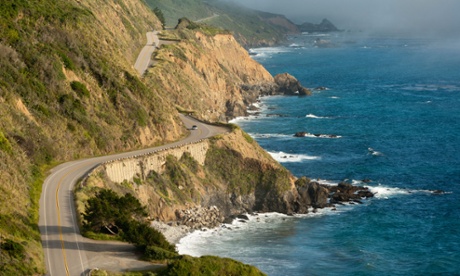
When he was 21, Dave Eggers’ mother and father died, 32 days apart, leaving him and his eight-year-old brother Toph, to navigate life as orphans. His part-autobiographical, part fictional account of this experience in his 2000 debut A Heart Breaking Work of Staggering Genius is not your traditional literary journey.
The brothers move from suburban Illinois to California, where an ill-equipped and immature Eggers is left with the task of raising Toph and simultaneously dealing with single parenthood and young adulthood.
Dave and Toph leave their Chicago home in “a blur”, packing their belongings into their red Civic and imagining an idyllic life in the sun. “The mornings are filmstrip white and we eat breakfast on the deck,” is how Eggers forsees it. The following chapters are a love letter to California and the Big Sur coast, as they drive through the dizzying cliffs singing along to the radio. The Highway One route is an iconic American road trip, portrayed in countless novels and films, and easy to imagine, but the ever-precocious Eggers even tells you how to imagine it:
Can you see us, in our little red car? Picture us from above, as if you were flying above us, in, say a helicopter, or on the back of a bird, as our car hurtles, low to the ground, straining on the slow upward trajectory but still at sixty, sixty-five, around the relentless, sometimes ridiculous bends of Highway 1. Look at us, godammit, the two of us slingshotted from the back side of the moon, greedily cartwheeling toward everything we are owed.”
Never has the trip been described more vividly, more excitedly than it is by Eggers, as he speeds through Half Moon Bay, Pacifica, Monterey, belting out More Than A Feeling, with “the ocean exploding pink”. As he writes: “Only up here does the earth look round, only up here can you see the bend of the planet at the edge of your peripheries. Only here are you almost sure that you are careering on top of a big shiny globe, blurrily spinning … Can you see this motherfucking sky? I mean, have you fucking been to California?”
This is a psychological journey as much as a geographical one. For all the brash exuberance of its writing it has at its heart the simple human tale of a young man, dealing with unbearable loss, navigating himself towards adulthood.
There are no truly out-of-the-ordinary locations, just Chicago, the California coast and the hills of San Francisco. (“I’m getting sick of the hills, always the hills, the turning the wheels to park, and the street cleaning and those fucking buses attached to the ropes or wires or whatever.”) So while it may not be the most conventional journey, it is certainly a ride. I would take this powerful, energised, living, breathing and imperfect adventure over a tired old travelogue any day.

